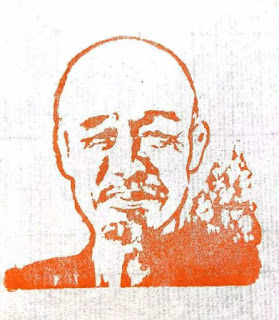“The Industrial Revolution and its consequences have been a disaster for the human race”
1. Industrial Revolution
The Industrial Revolution first started amid 18th century Britain, and would reappear across the western world (+Japan) a hundred years later. As you may be aware, before industrialization, people were healthier, wealthier, and happier living on their farm-plots without having to worry about artificial light pollution or maneuvering complex machinery. Yet life adapts to changes without fail. See how the peppered moth darkens to blend in with its surroundings. Humans are natural creatures too, we have underwent many changes in order to remain steady on our course.
1.5. Buddhism
If you want to do something, you should go ahead and learn about it. That’s why you should go and become a Buddhist. Whether you’re rich or poor, you may find your true self reflected in the temple. You can write a eulogy for your old self to your Japanese wife, leave your songs to the drama committee you created, and your art to the government. Leave your fame and money and adoring fans behind, and you will understand yourself better than ever before. Go to the temple. You will only die in peace if you live in peace.
2. Henry David Thoreau
Which version of you is natural, the spotted moth or the black moth? In “Where I Lived, and What I Lived for”, David Henry Thoreau discusses the way of living as being relative to our viewpoints. Humans can convince themselves of what we think is true as “which appears to be”. Yet Thoreau also implies a natural wrong and right way to perceive things; an environment from which we don’t belong results in the “misconception of his[one’s] character”. Thoreau criticizes modern society for being too concerned with the insignificant, and calls upon people to reduce their concerns with “Simplicity, simplicity, simplicity!” Thoreau thereby posits that further complication and civilization of society has infected the human psyche with unnecessary stimulation and over-consumption whose only purpose is to blind us from living in the moment. He claims that we work fruitlessly hard, that “[we]take a thousand stitches today to save nine tomorrow”, for no good reason. He dismays “so-called internal improvements” as entirely external and superficial. Perhaps what we think of as “progress” isn’t as beneficial to society as it appears in empiricist and rationalist thought.
3. Let’s live all live in nature!
Do you want to be a monkey? If I was a monkey I know exactly what I’d do. If I was a monkey I’d live out in the jungle and swing from treetop to treetop, scrounging for food. Then I’d recline on a tree branch for nap time. When I get up well-rested, I would eat the fruit from the trees all by myself, then come back to the troop in the afternoon for a free communal meal. Then me and my friends would relax and groom each other until I fall asleep. Then I would wake up early the next morning before dawn and suddenly start craving bugs, so I’d venture through the shadows in search of a 3:00 AM snack. On the way, I’d run into an old friend, Eek-ook Oogahoohoo, and become hectic with excitement. I hadn’t seen him in years! He tells me quickly that I should leave; he’s part of a new troop now and he’s worried they will be frightened from the presence of an intruder. My enthusiasm dissipates. How could my dear friend betray me without even saying goodbye? I bid my head and cautiously take my leave, shielding my tense face from the monkey who would never return my feelings. On the inside, I always knew that we could never be together. He was my cousin. I came back to my troop a changed monkey. In a rage, I consulted our troop leader. I didn’t want anyone to suffer as I did, so we needed to become stronger. First we dug up ground where we could store the seeds that created our food. Next we needed to expand the troop. Arm monkeys with branches and stones so that they could conquer the forest with ease. Bargain with other troops and beat them until they submit to your authority, and you could use them to build the tree trunks which would be used to cross rivers and reach new places with new species who could give you more new things that we used to build better sticks and stronger stones, weirder clothes and scarier machines and bigger homes. Even though we were all so busy sometimes I would wake up early and sit on the treetops and watch the sunrise. I missed when my life was simpler and I wasn’t concerned about things I didn’t understand at all. The feeling of regret was hanging heavy now. It was just monkey nature. Monkey see, monkey do, monkey cry.
4. Let’s not live in nature!
Richard Feynman, the father of nanotechnology, in a speech he gave to the American Physical Society in 1959, posits the inherent potential to create infinitesimally small machines, part of the expanding field of miniaturization (most clearly seen in, of course, computers). If you were able to store letters as a series of "bits" each 100 atoms in volume, you could store the entirety of recorded English written works in a cube with length 0.02 inches. Thus explains the title of his speech, "There's plenty of room in the bottom". When mentioning the infinitely small and infinitely big, it is necessary to retain that they are (basically) infinite, and if humans keep finding out ways to take advantage of this "infinity", we might be able to solve problems and prosper like never before. For example, if we develop technology to manipulate atoms, theoretically we will be able to atomically create any material we desire, even ones never before seen. However, as Feynman states, the problem with science is that it "is not necessary" and that society "puts it into a position" where it is not "arguing", i.e. being pushed to the side so that there is no incentive for ordinary people to learn even the most basic of Newtonian physics. The incentive is there for young people to learn science -- the reason why they don't is because they would rather focus on the bad and revel in their own doomsday scenarios. Young people love to tell you that "we're all going to die!" and "it's too late!", but in all seriousness, these people only want attention and validation to lie in their own nihilistic hedonistic misery and reassure themselves that they sound wise to the average under-developed middle school's mind. The consequences of human development are simply byproducts of men holding too much vanity to efficiently develop towards their true potential. Reading the news and scrolling past social media makes you gullible and profitable, but not wise. Henry David Thoreau claimed that one is "never again as wise as he was after birth" because you become over-stimulated and cluttered with man-made nonsense the longer you live. Even so, you still have the ability to pick and choose what concerns you just as David Foster Wallace preached when he wrote "This Is Water". No matter where or how or when you live, you can always find ways to live well.



Comments
Post a Comment